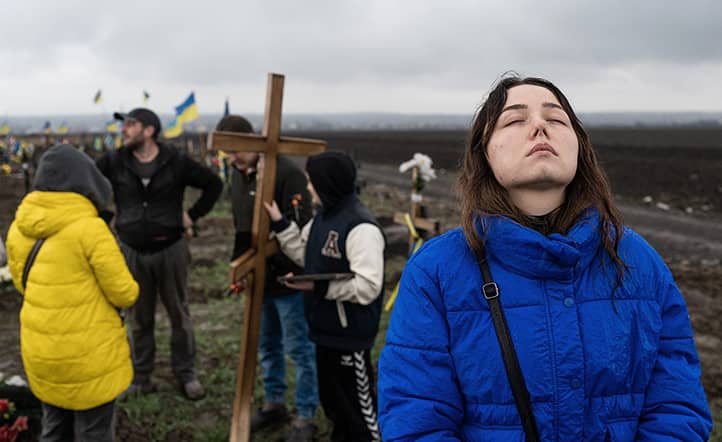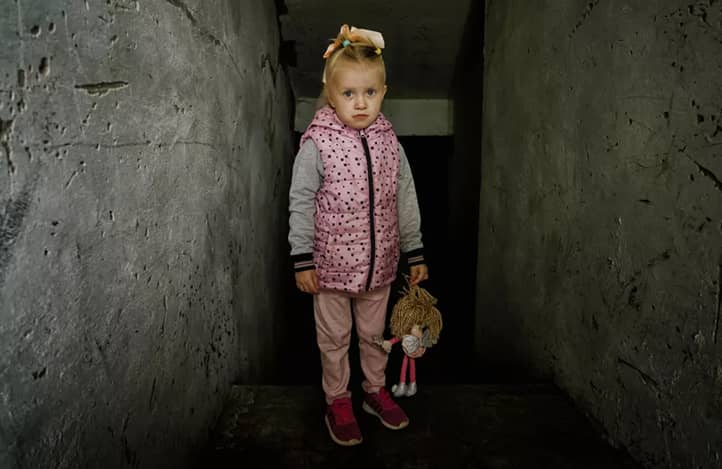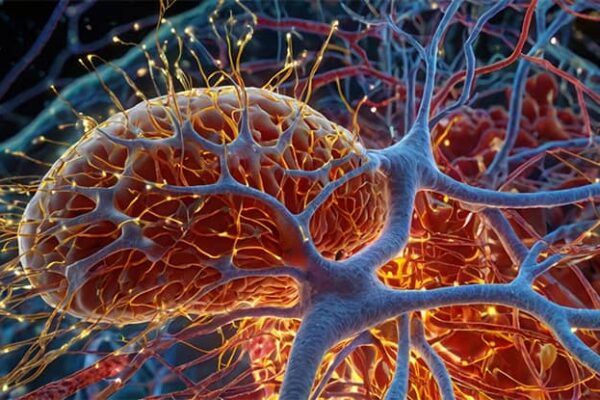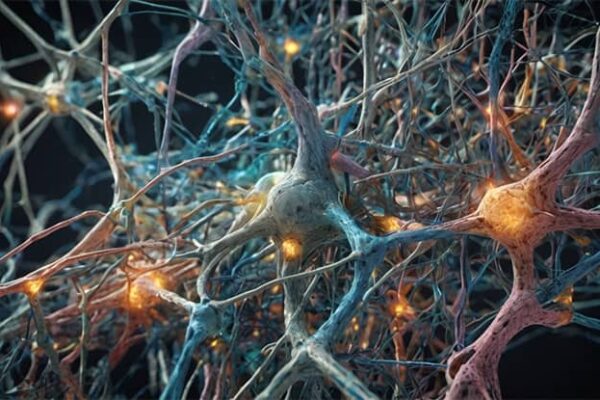The War in Ukraine, which Began in 2014 and Intensified Sharply in 2022, has Left a Deep Mark Not Only on the Country’s Infrastructure but also in the Hearts and Minds of Millions of Ukrainians. In addition to the obvious physical destruction, it has inflicted tremendous damage on the psychological health of the population. These invisible wounds may prove no less dangerous than material losses and require an immediate and comprehensive approach to treatment.
The psychological health of a nation is the foundation upon which the future of the country is built. Without proper attention to this problem, Ukraine risks facing long-term negative consequences that could affect not only the current but also future generations. Therefore, it is critical to develop an effective strategy to address the psychological effects of the war and provide the necessary support to those in need.

The Scope of the Problem
According to research conducted by Ukrainian and international organizations, the scale of psychological issues caused by the war is truly colossal. According to the Ministry of Health of Ukraine, about 15 million Ukrainians are in need of psychological support. A study by the World Health Organization revealed that 22% of Ukraine’s population show symptoms of post-traumatic stress disorder (PTSD). A UNICEF survey found that more than 50% of children in conflict zones exhibit signs of psychological stress.
These figures vividly illustrate the scope of the problem and the urgent need for action.
Most Common Psychological Problems
Among the most commonly encountered psychological problems caused by the war are post-traumatic stress disorder (PTSD), depression, anxiety disorders, panic attacks, sleep disturbances, substance abuse (alcohol and drugs), as well as suicidal thoughts and behaviors.
Each of these conditions requires a specific approach and professional help. Without proper attention, these issues can worsen significantly, leading to severe consequences for both individuals and society as a whole.

At-Risk Groups
Military Personnel and Veterans are in a particularly high-risk group. They face the horrors of war directly, often leading to severe psychological trauma. According to Ukraine’s Ministry of Veterans Affairs, about 40% of military personnel returning from combat zones suffer from PTSD. Many veterans experience difficulties reintegrating into civilian life, which can lead to social isolation and depression. Substance abuse is 2-3 times more common among veterans than among the general population.
It is necessary to develop comprehensive psychological support and rehabilitation programs for this group, including both individual and group therapy, as well as assistance with social adaptation.
Internally Displaced Persons
Millions of Ukrainians have been forced to leave their homes due to the war, leading to serious psychological problems. The loss of housing, jobs, and social connections often results in depression and anxiety disorders. Children from internally displaced families are especially vulnerable to psychological trauma due to the instability and uncertainty of their situation. Difficulties integrating into a new location can exacerbate psychological issues.
It is crucial to provide not only psychological support for this group but also help with social adaptation, employment, and housing issues.
Children and Adolescents
Children and adolescents are especially vulnerable to psychological trauma caused by war. Disruption of their normal way of life, separation from loved ones, fear, and uncertainty can severely impact a child’s psychological development. Many children struggle with concentration, which negatively affects their studies. Teenagers may exhibit deviant behavior or withdraw into themselves.
Special psychological support programs for children and adolescents need to be developed, including work with families and schools.
Relatives of the Deceased and Missing Persons
People who have lost loved ones or do not know their whereabouts are in an extremely difficult psychological state. The grieving process can be complicated by feelings of guilt and anger. The uncertainty surrounding missing relatives can lead to chronic stress and clinical depression. Family relationships and social lives are often affected.
This group requires not only psychological support but also assistance in locating missing persons and legal support.

Existing Support Measures
The Ukrainian government has taken several steps to address the psychological aftermath of the war. These include the creation of the National Mental Health and Psychosocial Support Program, the opening of psychological rehabilitation centers for veterans and their families, and the inclusion of psychological care in the mandatory health insurance program.
However, despite these efforts, the scale of the problem requires significant expansion and improvement of existing programs.
Resources for Free Psychological Assistance:
- Free psychological support – https://vos.health/ru/login/ukraine
- NGO specializing in mental rehabilitation for children affected by the horrors of war – https://genukrainian.com.ua
- Online support groups in Zoom for teenagers and their parents – https://poruch.me
Role of Non-Governmental Organizations (NGOs)
NGOs play a significant role in providing psychological assistance. Many NGOs organize psychological support hotlines, hold training sessions for psychologists and volunteers, and organize support groups for various categories of victims.
However, NGO resources are limited, and they cannot fully meet the existing demand for psychological help.
International Assistance
The international community provides substantial support to Ukraine in addressing the psychological consequences of the war. WHO and other international organizations offer expert and financial assistance, conduct international training for Ukrainian specialists, and provide grants for research and implementation of psychological support programs.
It is essential to effectively utilize this assistance and integrate international experience into Ukrainian realities.

Problems and Challenges
One of the key issues is the acute shortage of qualified psychologists and psychotherapists. According to experts, Ukraine needs 3-4 times more mental health professionals than are currently available. Many psychologists lack experience working with military trauma and PTSD. Emotional burnout among existing specialists due to high workloads is also a problem.
It is urgent to increase the number of training programs for psychologists and create a support system for the specialists themselves.
Stigmatization of Psychological Problems
In Ukrainian society, there is still a stigma associated with seeking psychological help. Many people believe that seeing a psychologist is a sign of weakness. There is also fear that a diagnosis of a mental disorder could negatively impact one’s career or personal life. In some communities, especially rural areas, psychological issues are considered something to be dealt with on one’s own.
Overcoming this stigma requires large-scale information campaigns and changes in public perception.
Limited Resources
Despite the efforts of the state and international organizations, resources for addressing the psychological consequences of the war are still insufficient. There is a lack of funding to create the necessary number of psychological support centers. There is a shortage of modern equipment and materials for diagnosing and treating psychological trauma. Many regions, especially rural areas, do not have access to quality psychological care.
It is necessary to seek additional funding sources and optimize the use of existing resources.

Proposals for Improving the Situation
To effectively address the problem, it is crucial to significantly expand the network of institutions providing psychological help. This includes creating mobile psychological assistance teams for remote areas, integrating psychologists into primary healthcare services, and developing online platforms for psychological consultations.
This will make psychological help more accessible to all segments of the population.
Training Specialists
It is essential to increase the number of qualified mental health professionals. Specialized training programs for working with military trauma and PTSD need to be developed, internships for Ukrainian specialists in countries with experience in handling the consequences of military conflicts should be organized, and a system of supervision and support for active psychologists must be created.
Investing in the training of specialists is an investment in the future mental health of the nation.
Information Campaigns to Combat Stigma
It is necessary to actively work on changing public opinion regarding psychological issues. This includes conducting large-scale information campaigns in the media and social networks, incorporating mental health topics into school curricula, and engaging public figures in discussing the importance of psychological help.
Reducing stigma will allow more people to seek the necessary help in a timely manner.
Integration of Psychological Care into the Healthcare System
It is important to make psychological care an integral part of the overall healthcare system. This implies training primary care physicians in basic psychological assistance, creating interdisciplinary teams for comprehensive patient treatment, and including psychological diagnostics in standard medical checkups.
This will help identify psychological issues early and provide timely assistance.

Long-Term Consequences and the Importance of Preventive Measures
The psychological trauma experienced during the war can affect not only direct participants in the events but also their children and even grandchildren. Research shows that children of parents with PTSD are at increased risk of developing psychological problems. Traumatic experiences can be passed down through changes in parenting and family dynamics. There is a risk of forming a “culture of trauma” in society, which can negatively affect the country’s development in the long term.
Therefore, it is crucial not only to treat existing psychological problems but also to work on their prevention.
Economic Consequences
Neglecting the population’s mental health can have serious economic consequences. People with untreated psychological trauma are often less productive at work or may be unable to work at all. Healthcare costs increase due to psychosomatic illnesses. The burden on social services and welfare systems also grows.
Investing in the population’s mental health should be seen not as a cost but as an investment in the country’s economic future.
The Need for a Long-Term Strategy
To effectively address the psychological consequences of the war, a long-term, comprehensive strategy is required. This should include not only measures for immediate assistance but also plans for developing the psychological support system for decades to come.
Such a strategy should consider the following aspects:
- Systematic research of the long-term consequences of the war for the mental health of the population.
- Development of programs for the early detection and prevention of psychological issues, especially among children and adolescents.
- Creation of a sustainable system for the training and support of mental health professionals.
- Integration of psychological care into all spheres of public life: education, healthcare, social services, and workplaces.
- Development of a national culture of mental health care.

Conclusion
The psychological consequences of the war in Ukraine represent a serious and multifaceted problem that requires a comprehensive and long-term approach. The invisible wounds inflicted by the war can be as dangerous as physical destruction, and addressing them is just as critical as rebuilding infrastructure.
To successfully solve this problem, a collective effort is required from the state, society, international organizations, and every citizen. It is important to understand that caring for mental health is not a luxury but a necessity for building a strong, resilient, and prosperous society.
Ukraine faces a complex challenge, but it has every opportunity not only to overcome the current crisis but also to become a model for other countries in the comprehensive approach to the mental health of the population after armed conflicts.
Key steps that need to be taken in the near future include:
- Expanding the network of institutions providing psychological assistance, especially in remote areas.
- Increasing the number of qualified specialists by improving educational programs and attracting international expertise.
- Conducting large-scale information campaigns to reduce the stigma surrounding psychological issues.
- Integrating psychological care into the general healthcare system.
- Developing and implementing a long-term national mental health strategy.
Only a comprehensive approach that considers both immediate needs and long-term consequences will allow Ukraine to effectively heal the psychological wounds of war and create a foundation for a healthy and stable society in the future.
It is important to remember that treating psychological trauma is not only a medical or social issue but also a matter of national security and well-being. Investments in the mental health of the population today are investments in a stable and prosperous future for the country tomorrow.
In conclusion, I would like to emphasize that the path to restoring the psychological health of the nation will be long and challenging, but it is a necessary step toward building a strong Ukraine. Every citizen, every organization, and the state as a whole must recognize the importance of this task and contribute to its resolution. Only by uniting our efforts can we overcome the invisible wounds of war and lay the foundation for a healthy, peaceful, and prosperous future.




